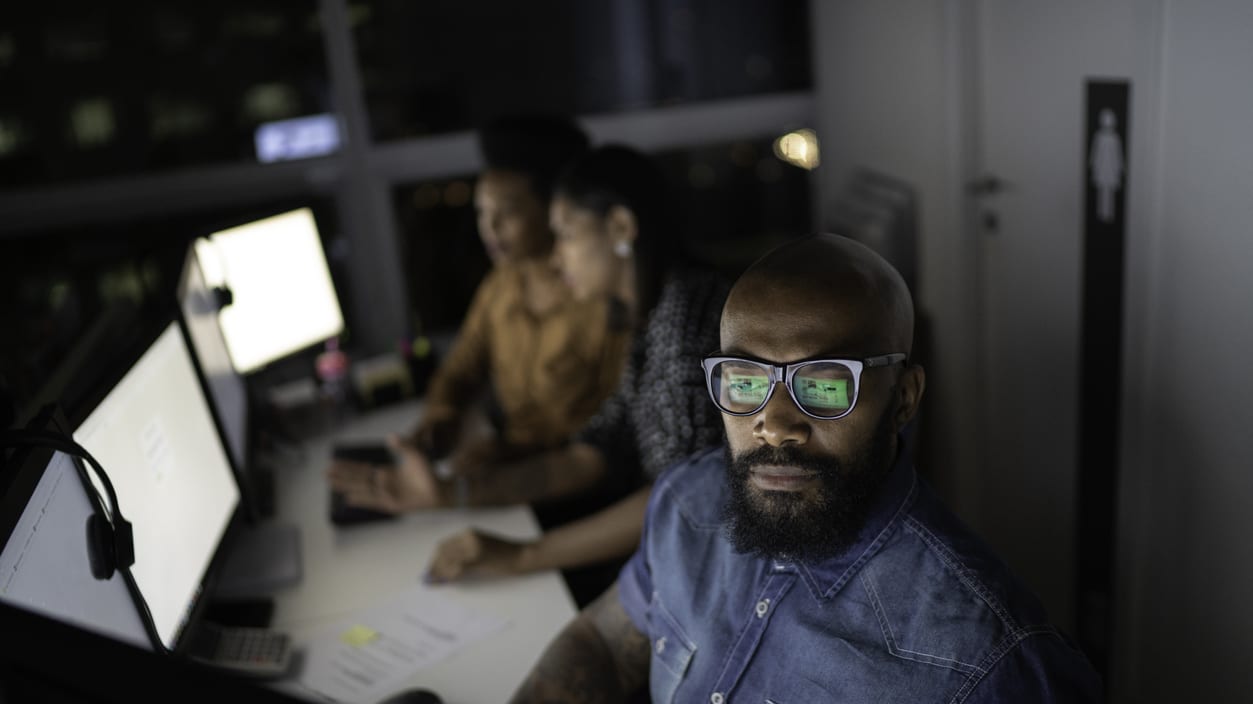Companies including Google and Facebook have pledged to hire more diverse employees, but black employees say that the tech industry is still unwilling to confront bias.
Analyses by USA Today and others show major tech companies employ far fewer women and underrepresented minorities than other industries, even in Silicon Valley. Black employees say that racism and discrimination have worsened.
SHRM Online has collected the following articles on this topic from its archives and other news sources.
#SiliconValleySoWhite: Black Facebook and Google Employees Speak Out on Big Tech Racism
On a weekday morning in September, Leslie Miley, an engineering manager with decades of experience in the tech industry, joined his colleagues streaming into Google's San Francisco offices. His employee badge was plainly visible, clipped to his belt.
Miley says a fellow Google employee—who was not security personnel—raced in front of him and physically stopped him, demanding to see Miley's badge. It wasn't the first time that a colleague had body blocked Miley when he was trying to go to work.
He says these incidents, which he refers to as "bias in badging," send an insidious message to people of color that "you don't belong here" in an industry mostly staffed by white people and men.
(USA Today)
My Father Was IBM's First Black Software Engineer. The Racism He Fought Persists in the High-Tech World Today
Minority underrepresentation in high tech has been present since the earliest days of the industry. In reflecting upon my father's career for a new memoir I wrote about him, Think Black (Amistad, 2019), I saw important lessons about the history and nature of racism in high tech, and about the steps that corporations and individuals can take to bring about much-needed change.
(Los Angeles Times)
Black Facebook Employees Complain Racism, Discrimination Have Gotten Worse
An anonymous memo alleging Facebook still has a problem with racial bias is circulating inside the company one year after a former employee complained of racism and discrimination there, USA Today reported in November 2019.
The post from 12 current and former employees, first reported by Business Insider, details a number of incidents, suggesting morale has sunk even lower since Mark Luckie published his Facebook post about discrimination on the company's Silicon Valley campus and on the social media giant's platform.
Both missives expose the racial fault lines in the mostly white tech industry and how the stubbornly persistent lack of representation and agency of black Americans inside Facebook directly affects how black people on Facebook and its other platforms are treated.
(USA Today)
[SHRM members-only policy: Diversity Policy]
Five Years of Tech Diversity Reports—and Little Progress
In 2014, when Silicon Valley companies began disclosing the demographics of their workforces, advocates hoped for change. Despite their business successes, though, none of these big tech companies has made much progress in diversifying their workforces.
At Google and Microsoft, the share of U.S. technical employees who are black or Latino rose by less than a percentage point since 2014. The share of black technical workers at Apple is unchanged at 6 percent, less than half blacks' 13 percent share of the U.S. population.
The companies report more progress for women. At Facebook, the technical workforce is 23 percent female, up from 15 percent in 2014; Google reports similar gains. But no company is close to parity, despite having repeatedly pledged millions to address the problem.
(Wired)
Is Silicon Valley Using Culture Fit to Disguise Discrimination?
For an industry that prides itself on creativity, its workforce is homogenous. A former techie-turned-writer shares his experience of working as a black employee in Silicon Valley and tells how the technology sector remains out of reach for many under-represented ethnicities.
(Raconteur)
Speaking Up Against Discrimination and Racism in the Workplace
How will you speak up when faced with racism and discrimination?
Is there a right way to respond to discrimination, racism and racist comments in the office? As a leader, you have to consider carefully the impact of racism within your organization. How you communicate around discrimination will define your impact as a leader and as a human being.
(Forbes)
How Do You Combat Racism at Work? Experts Offer Suggestions
Starbucks closed the doors of its 8,000 stores one day in 2018 to conduct staff training that addresses "implicit bias, promotes conscious inclusion and prevents discrimination."
Other companies may be asking themselves, too, how their workplaces can be more welcoming to people of color, whether job applicants, employees, customers or vendors. Here are some suggestions.
(SHRM Online)
An organization run by AI is not a futuristic concept. Such technology is already a part of many workplaces and will continue to shape the labor market and HR. Here's how employers and employees can successfully manage generative AI and other AI-powered systems.




